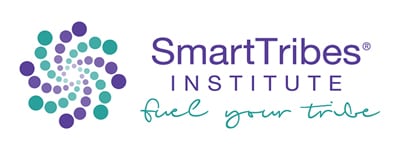
75% Of Workers Are Affected By Bullying — Here’s What To Do About It
August 31, 2016
Why Leaders Need To Be Great Storytellers
September 14, 2016
*As originally seen on Forbes.com
Wouldn’t it be great if we could just tell people what to do and they’d do it? Wasn’t that what was supposed to happen when you finally got that promotion, or started that business?
The thing is, your team are human beings—not machines. They are thinkers who thrive on solving problems. When people solve a problem themselves, plan a solution themselves, decide for themselves what to do next and next and next…they are engaged.
On the contrary, when you tell your team exactly what to do, when to do it, and how to do it, their inner two-year old comes out, and they either want to rebel or they grudgingly go-along and learn to be ever more helpless. But when people solve problems for themselves they feel a sense of relief, that they have contributed to making the world just a little bit better.

Shutterstock
What Worked Then Doesn’t Work Now
Now in some organizations problem solving thinking is not useful for certain individuals. For example, if you are running a military operation you may not want your team to think too much. It may be in everyone’s best interest to obey immediately. In many religions the doctrine requires obedience to a higher authority and hierarchies serve a divine purpose with God at the top. Thinking and deciding for oneself is discouraged.
This is not necessarily a bad thing. Hierarchical, command and control organizations served an evolutionary purpose. They allowed large organizations to evolve. An organization of this type can create stable processes and achieve long term goals. Without this type of organization, we would not have any awe-inspiringly beautiful cathedrals in Europe or the pyramids in Egypt.
However, today’s organizations are increasingly complex. They need to process enormous amounts of information, react, and reorganize ever more quickly. That means command and control doesn’t work anymore. The problems are too big for one person to create and dictate solutions without involving the input of the people who are actually doing the job. In fact, the people who are closest to the actual work of creating and/or delivering the product know best what to do and how to adapt.
So today’s “control systems” need to be centered around developing communication skills and creating productive teams and effective collaboration.
Here’s What Does Optimize Teams
Last Fall Google researched what factors make teams effective. They expected to find the perfect make-up of an effective team: the individuals, personality types, number of PhDs, and more. What they found surprised them.
What determined effectiveness was how the team interacted. Not who was on the team.
Here are their five keys to optimizing teams:
1. Psychological safety: Can we take risks on this team without feeling insecure or embarrassed?
2. Dependability: Can we count on each other to do high quality work on time?
3. Structure and clarity: Are goals, roles, and execution plans on our team clear?
4. Meaning of work: Are we working on something that is personally important for each of us?
5. Impact of work: Do we fundamentally believe that the work we’re doing matters?
The key skill is listening.
Working with my clients, I have noticed that there is a fundamental skill that underpins the first three factors. If team members don’t have it, you don’t get those factors, so you can’t optimize that team.
No listening, no psychological safety.
No listening, no understanding…so dependability will suffer.
No listening, how can anyone be clear? How can a structure be embraced?
| Google Term | Meaning | Safety, Belonging, Mattering |
| Psychological safety | Can we take risks on this team without feeling insecure or embarrassed? | Safety, Belonging |
| Dependability | Can we count on each other to do high quality work on time? | Safety, Belonging, Mattering |
| Structure & clarity | Are goals, roles, and execution plans on our team clear? | Safety, Belonging |
| Meaning of work | Are we working on something that is personally important for each of us? | Mattering |
| Impact of work | Do we fundamentally believe that the work we’re doing matters? | Mattering |
Many of my clients initially name “listening” as something they should work on in their coaching. Yet they often seem almost perversely proud of their non-listening status. How many of us find ourselves at odds with the knowledge we “should” listen but the conflicting compulsion to lead by directing, which often translates into talking more than others. Or worse yet, appearing to listen but just quietly waiting for our time to talk without really paying attention.
How To Give People What They Ache For
We don’t feel safety, belonging or mattering without it. According to Oprah Winfrey, who has interviewed thousands upon thousands of people from ordinary folks to world leaders and highly successful business people, they all ask her the same question after the interview: “Did I do OK?”
In seeking validation many people talk without listening first. We are eager to make our next point and be validated. So we don’t listen. While the other person is speaking, we are arranging our next piece of brilliance and persuasion in our minds. When we’re told we need to be more “present” or even told to talk less, we start out with the best intentions, but soon find ourselves vying for airtime.
Ask questions and actually listen for the answer and keep your mouth closed until it’s time to ask the next question. Try keeping the ratio of questions to you offering your opinion at 80% questions to 20% your opinion.
In a team, especially if you are learning to collaborate better, try a few sessions using a device like a talking stick (only the person holding the stick can talk) to ensure that everyone gets equal air time. The “talking stick” concept comes from Native American traditions but can be any object that is culturally appropriate for your team—even a pen will do.
In the age of organizations as living organisms, listening is the skill that will help your team soar—and give them the emotional experience they long for.




